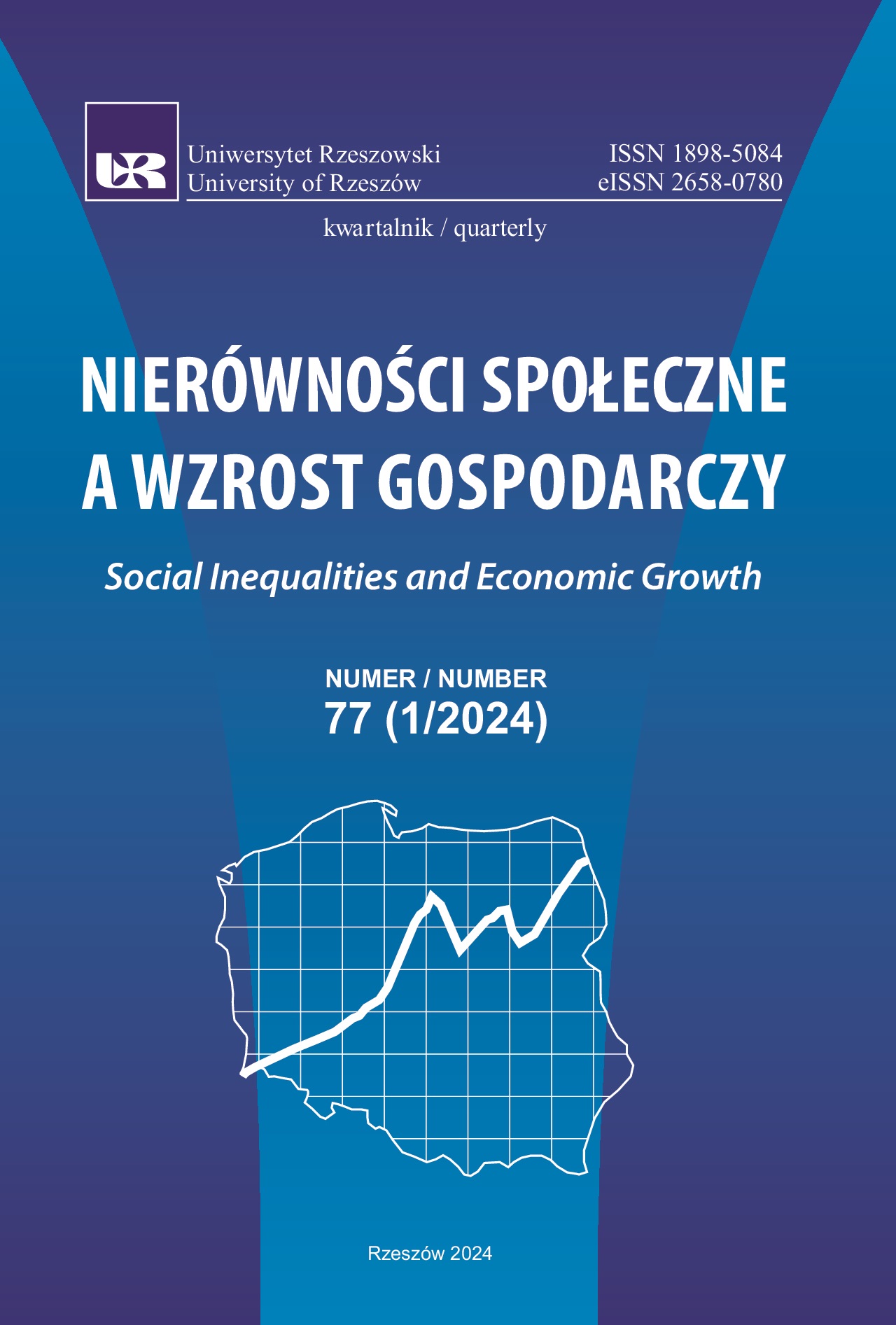Analiza poziomu płac minimalnych w Polsce w latach 2003–2023 w kontekście utrzymania wartości kapitału ludzkiego
Analysis of the minimum wage level in Poland in the years 2003–2023 in the context of maintaining the value of human capital
Author(s): Marcin Jędrzejczyk, Wojciech KoziołSubject(s): National Economy, Human Resources in Economy, Socio-Economic Research
Published by: Wydawnictwo Uniwersytetu Rzeszowskiego
Keywords: minimum wage; cost of living; human capital;
Summary/Abstract: The main aim of the paper is to assess the degree of implementation of the minimum wage function, consisting in ensuring an appropriate level of household income. Due to the adopted research approach, it is an amount that makes it possible to maintain the value of human capital in families earning the minimum wage. In the research, the model of measuring and paying for human capital created with respect for basic accounting principles has been adopted. This model allows an objective and accurate calculation of the minimum wage level, the amount of which is determined by the value of the cost of living. In order to achieve the objective of the conducted research, the level of compliance between the applicable minimum wage rate and the rate resulting from the human capital model was calculated. The empirical research covered the amount of minimum wages in Poland in the period 2003–2023 and a simulation for the following year. The results indicate an increasing level of compliance between the applicable wage and the model wage. This phenomenon should be viewed positively when the minimum wage increasingly protects the poorest families from the dispersion of their human capital. In turn, the simulation results indicate that, for 2024, a rate slightly higher than the model value is planned, which will result in an excessive burden on employers. The results obtained can be used to improve the procedure for the annual update of the minimum wage rates. The ability to calculate its amount accurately will make it possible to balance the cost and income function of the minimum wage, i.e. securing the value of human capital of the poorest families at the lowest possible cost for the employer. The general conclusion of the conducted analysis proves that the minimum wage model based on the human capital model is an objective method of determining the minimum wage level in the economic system.
Journal: Nierówności Społeczne a Wzrost Gospodarczy
- Issue Year: 2024
- Issue No: 77
- Page Range: 119-134
- Page Count: 16
- Language: Polish

